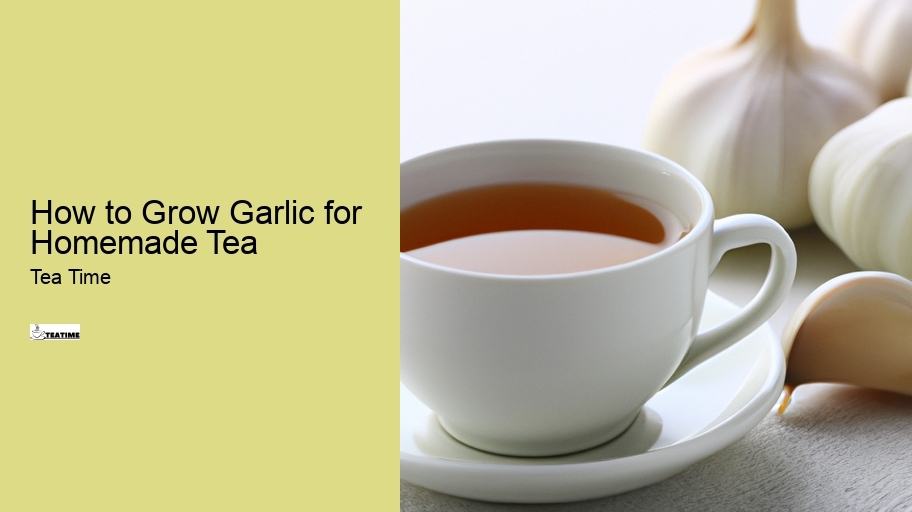

Garlic tea is increasingly recognized for its potential benefits in managing blood pressure.
Incorporating garlic tea into a regular diet may provide a natural way to support heart health. Its blood pressure-lowering effects are particularly beneficial for those at risk of hypertension. However, it's important to note that garlic tea should complement, not replace, prescribed medications and a balanced diet.
Consultation with a healthcare professional is essential before using garlic tea as a part of a blood pressure management plan. They can provide guidance on how it can fit into your overall health strategy. This ensures that garlic tea is used safely and effectively in conjunction with other treatments.
Medicinal PropertiesOne of the appealing aspects of garlic tea is its lack of caffeine, making it an excellent choice for those sensitive to stimulants or looking to reduce their caffeine intake. Blood Pressure Regulation Being naturally caffeine-free, garlic tea can be enjoyed at any time of the day without the risk of disrupting sleep patterns or causing the jittery effects associated with caffeine.
This absence of caffeine also makes garlic tea a suitable option for a wide range of individuals, including those with certain health conditions or dietary restrictions. It allows the enjoyment of a warm, soothing beverage without the concerns that come with caffeine consumption.
For those transitioning from caffeinated drinks, garlic tea can serve as a healthy alternative. It offers the comfort of a hot drink and the health benefits of garlic, all while being gentle on the body and free from the stimulating effects of caffeine.
The use of garlic in herbal teas has a storied history, tracing back to ancient civilizations. Recognized for its medicinal properties, garlic was a staple in traditional healing practices across various cultures. Heart Health It was particularly valued for its ability to treat infections, improve digestion, and boost overall health.
In many traditional medicines, garlic was considered a powerful remedy due to its natural antiseptic, antimicrobial, and immune-boosting qualities. Herbalists and healers often prescribed garlic tea as a treatment for respiratory ailments, digestive issues, and even to ward off plagues and infections.
Today, the historical use of garlic in herbal teas continues to be validated by modern research, which supports its health benefits.
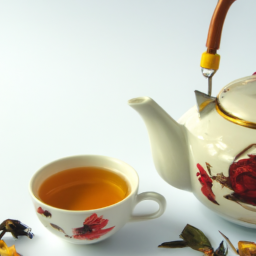
Pairing the right foods with garlic tea can enhance the overall culinary experience. For a harmonious combination, consider light and savory snacks such as crackers, cheese, or olives. These pairings can balance the robust flavor of the tea and make for a delightful snack or light meal.
For those with a sweet preference, pairing garlic tea with honey-infused bread or pastries can create an appealing contrast. The sweetness of the honey complements the pungent taste of the garlic, offering a unique flavor experience. Diabetes Management Fresh fruits like apples or pears can also be a refreshing accompaniment.
Experimenting with different food pairings allows for a range of culinary explorations with garlic tea. Whether it's a sweet or savory preference, finding the right food combination can elevate the enjoyment of this healthful and flavorful beverage.
Garlic tea is a natural choice for detoxification. Its compounds, especially allicin, have detoxifying properties that help cleanse the body. By stimulating liver function and aiding in the elimination of toxins, garlic tea supports the body's natural detoxification processes. Regular consumption can contribute to overall liver health and toxin removal.
The antioxidants in garlic tea also play a crucial role in detoxification.
Incorporating garlic tea into a detox regimen can be simple and effective. It's recommended to drink it on an empty stomach for maximum benefits. This natural beverage is a gentle yet powerful way to support your body’s detoxification, making it a valuable addition to a healthy lifestyle.
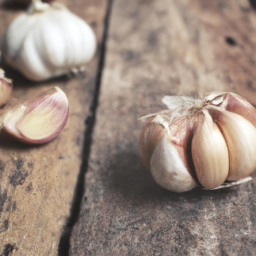
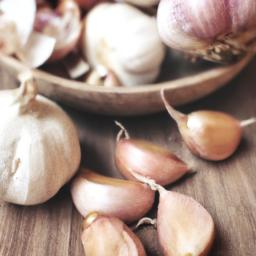
The choice between fresh and dried garlic in tea can affect both its flavor and health benefits. Fresh garlic, known for its pungency and strong flavor, is often preferred for its higher concentration of allicin. This compound is most potent in fresh garlic, offering maximum health benefits when used in tea.
Dried garlic, on the other hand, offers a more mellow and less pungent flavor. While it may have slightly lower levels of allicin, it still retains many of garlic’s beneficial properties. Cold and Flu Remedies Dried garlic is also convenient and can be a good alternative when fresh garlic is not available.
Ultimately, the choice depends on personal preference and availability. Both fresh and dried garlic can make a healthful and flavorful tea, each bringing its unique qualities to the brew.
Garlic tea is gaining popularity as a natural aid in weight loss efforts. Its potential to boost metabolism and aid in fat burning makes it an appealing addition to a weight loss diet. Regular consumption of garlic tea can also help in regulating appetite, potentially leading to reduced calorie intake.
The compounds in garlic, particularly allicin, are thought to have thermogenic properties that increase metabolic rate. This can enhance the body's ability to burn fat more efficiently. Additionally, the natural diuretic effect of garlic helps in reducing water retention, contributing to weight management.
While garlic tea can be a supportive element in a weight loss regimen, it should be accompanied by a balanced diet and regular exercise. It's not a standalone solution but can complement other healthy lifestyle choices.
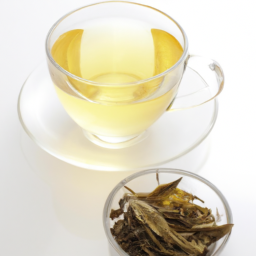
Garlic tea offers a range of health benefits due to its rich content of antioxidants and compounds like allicin. It's known for boosting the immune system, reducing inflammation, aiding in heart health by managing blood pressure and cholesterol levels, and it may also have antibacterial and antiviral properties. Additionally, it can aid in digestion and respiratory health, and some suggest it might help in weight management.
To make garlic tea, start by peeling and lightly crushing 2-3 cloves of fresh garlic to release their oils. Steep the crushed cloves in a cup of hot water for about 5-10 minutes. Strain the garlic and add lemon or honey to taste, if desired. Adjust the amount of garlic and steeping time according to your taste preference.
Yes, garlic tea can be beneficial in relieving symptoms of colds and flu. Garlic has natural antibacterial and antiviral properties that may help in fighting infections. Drinking warm garlic tea can also provide soothing relief for sore throats and congestion.